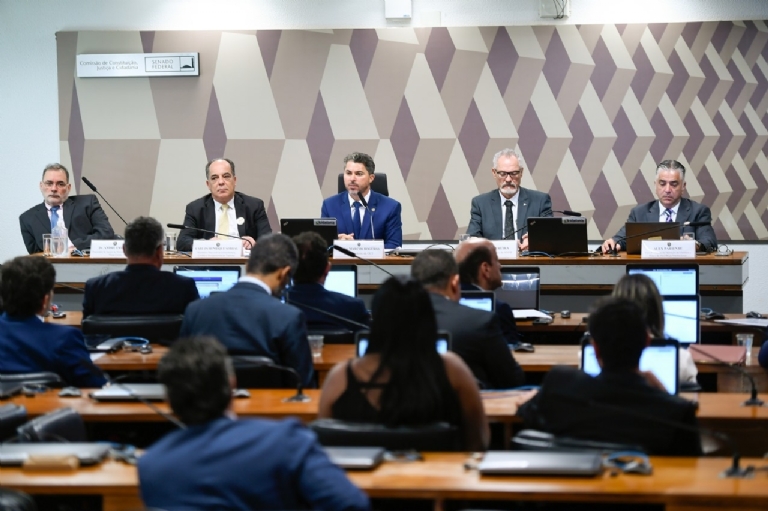

During a public hearing at the Senate Committee on Constitution and Justice (CCJ) this Thursday (9), both favorable and opposing opinions on the legalization of casinos, bingo halls, jogo do bicho, and horse racing betting were heard. In agreement, the committee acknowledged the need for opposing views to ensure a fair debate.
Opposition to the legalization of gambling once again made inappropriate allusions that the activity leads to addiction, does not contribute to tourism, generates crime, and money laundering. With this, they demonstrated how such arguments do not hold up.
On the other hand, the Vice President of Casino and Hotel Operations at Hard Rock International, Alex Pariente, brought forth the best information to show the positive economic impact of the activity.
According to Alex Pariente, casinos are a form of entertainment widely accepted around the world. "There are few places where some form of authorized gambling activity does not exist. And the success of the industry as an economic activity is undeniable," he stated.
He cited the example of the United States, with over a thousand operational casinos, providing direct formal employment to over 2 million people and billions of dollars in taxes.
The Hard Rock executive countered the information that only 4% of Brazilian visitors to Las Vegas gamble. "I want to remind you that these 4% of those who go to Las Vegas spend a lot. Today, Brazil is the third-largest consumer of gaming in Las Vegas, demonstrating the strength of this industry and how much the activity contributes to the economy of a city thousands of kilometers away," he stated.

Pariente highlighted that Hard Rock has numerous hotel ventures in Brazil, demonstrating the strong inclination of the hotel chain to cater to the Brazilian market. "We can offer even more, with the legalization of casinos, bringing the best from around the world."
"All sectors of the gaming industry should be legalized to attract external investments and even local operators interested in investing in the country," he advocated.
He reminded that "gambling already exists, it just needs to be legalized, as it does not guarantee revenue for the government. Legalization ensures control, creation of formal jobs, and attraction of external investments."
Regarding tourism, Pariente left everyone astonished by stating that the Dominican Republic, where Hard Rock operates a casino, "received more than 10 million tourists in 2023, while Brazil received only 6 million."
To ensure a safe and transparent activity, as well as consistent investments, there are three pillars to follow, according to Pariente. "Brazil needs an adequate legal framework that guarantees legal security; limiting the number of licenses to offer healthy competition and focus on high-impact economic businesses; and creating a strong regulatory body to ensure that the activity is well-controlled," he concluded.
The public hearing at the Committee on Constitution and Justice was proposed by Senator Irajá, rapporteur of Bill 2,234/2022, to address the legalization of casinos, bingo halls, jogo do bicho, and horse races.
In addition to some opponents of the approval of the bill, the hearing features Alex Pariente, VP of Casino and Hotel Operations at Hard Rock International; Doreni Caramoni, president of the Association of Event Promoters; Guilherme Luís Dias, specialist in inspection and regulation; Thiago Borges, VP of the Brazilian Association of Resorts; and Manoel Cardoso Linhares, president of the Brazilian Hotel Industry Association, among others.
Bill 2,234/2022 authorizes the installation of casinos in tourist hubs or integrated leisure complexes, such as high-standard hotels with at least 100 rooms, restaurants, bars, and venues for meetings and cultural events.
The text provides for the installation of one casino in each state and the Federal District. Exceptions are made for the states of São Paulo (three casinos), Minas Gerais, Rio de Janeiro, Amazonas, and Pará (up to two each).
Source: GMB